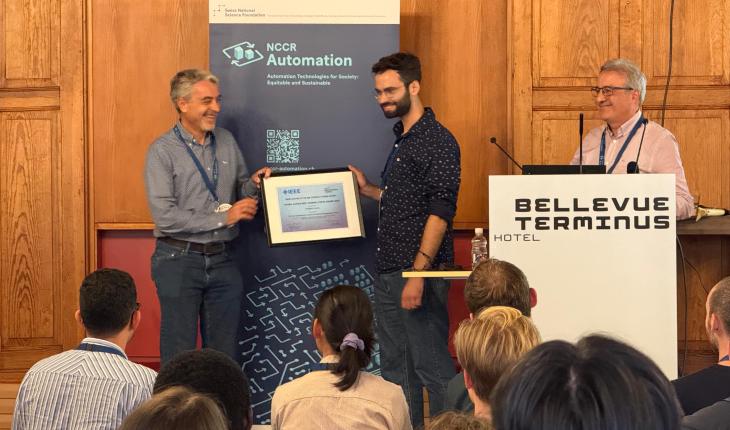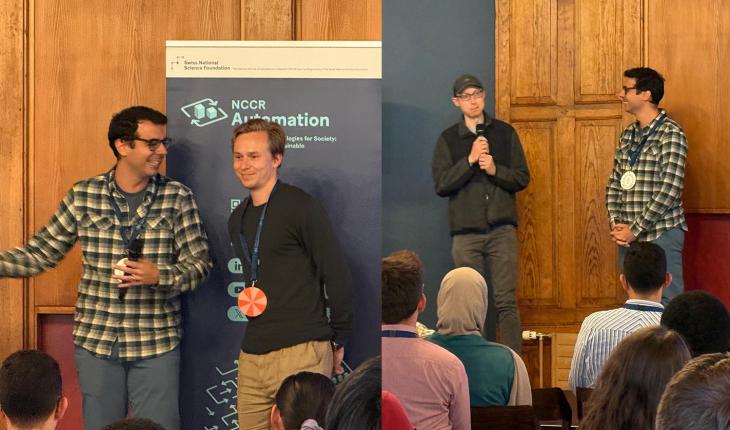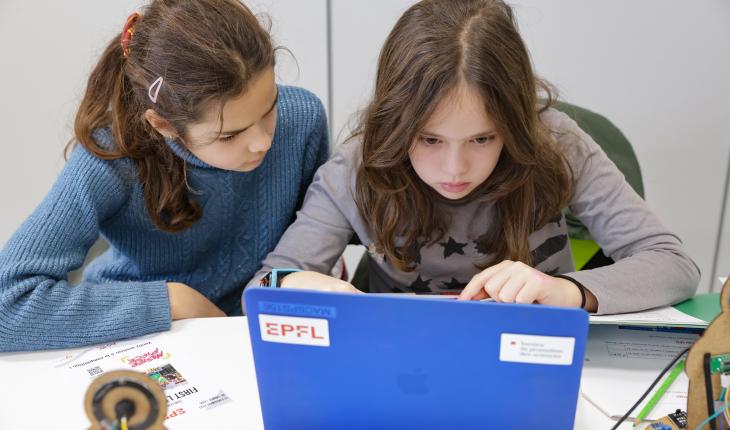“Research in automation means thinking about the future”

Mahrokh, you did your undergraduate studies at Sharif University of Technology in Tehran, Iran. How different was academia in Iran?
One major difference that I experienced was the discussion about equal opportunity. In Switzerland, I hear a lot about motivating more women for STEM fields. In Iran, nobody cares about this because there are already so many girls in engineering, electrical engineering etc. So I was quite surprised, shocked even, that there are so few girls in Switzerland studying these subjects.
Why do you think it is so different here?
I don’t know what barriers stop women from pursuing engineering and similar subjects here – perhaps it is a confidence thing. They might think that they can’t do it. But this is very different for young women in Iran. There, it’s perfectly normal for them to go into these subjects.
Was there a particular reason you still chose to go abroad to continue your studies?
My main goal was to study at a high-level university and collaborate with leading researchers in the field. During my Bachelor’s studies, I did two internships in Switzerland – one at ETH and the other at EPFL. Both are excellent universities and I really liked my experiences there. Also, I am particularly interested in integrating renewable energy technologies in the existing system, which is something that ETH and EPFL also put a focus on. Therefore, I wanted to join again for my PhD.
What is your NCCR project about?
I develop learning algorithms for control systems that let different elements of electrical grids make autonomous decisions. This means that they can adapt to things like changing demand by consumers or supply by the grid.
Can you give an example?
So far, I consider smart loads at the household level – things like washing machines whose consumption can be controlled externally. Let’s say you want your clothes to be washed by 8 AM the next morning, but don’t care when exactly. Based on the conditions in the grid, the algorithm of the control module in the washing machine can decide that for you. This can reduce electricity consumption at high-demand periods, for example. The algorithm’s decisions also take into account households' past consumption to infer patterns and make predictions such that potential inconveniences for households are minimized. The immediate benefit for the households is reducing electricity costs. Due to the possibility to shift demand, this could also help accommodate more renewable energy resources into the electricity grid.
That sounds futuristic.
Yeah, you don’t know when exactly these algorithms can go into action and the world might already have changed quite a bit by then. So, when you do research in this field, you have to think about what the future might look like and take that into account.
How does your project fit into the NCCR as a whole?
One of the goals of the NCCR is to figure out how to integrate more renewables in the electrical grid. Flexible loads, like the washing machines, can help with that. So this is where my project fits in, I would say.
How does the NCCR influence your work?
There are some research groups within the NCCR working on similar topics. I am very enthusiastic about learning what they work on exactly, the problems they want to solve and how they go about it. I think the NCCR can help us to make these close connections. To that, I look forward!
Meet Mahrokh as part of the #NCCRWomen campaign ici.
Find out more about Mahrokh, cliquez ici.



